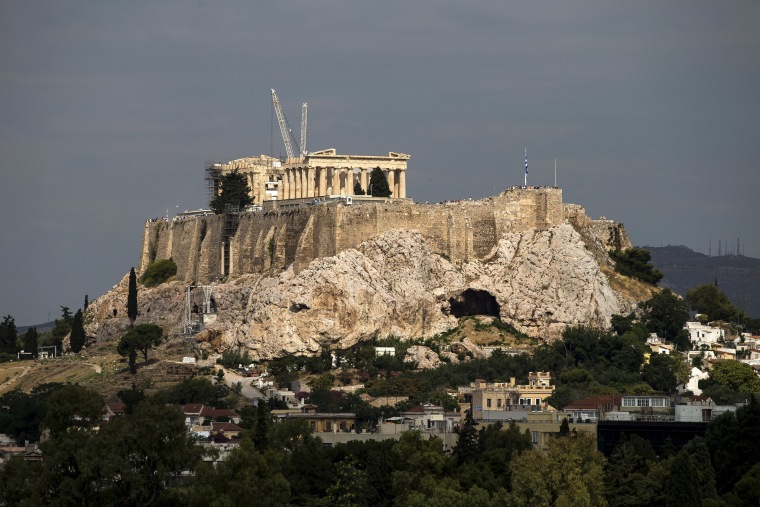Millions of silver coins may have been stored in the attic of the Parthenon, one of the most famous structures from the ancient world, a research team says.
The attic of the Parthenon is now destroyed and the coins would have been spent in ancient times. The researchers made the discovery by reconstructing the size of the attic, analyzing ancient records to extrapolate how large the reserves may have been and re-examining archaeological work carried out decades ago.
Their evidence suggests that millions of coins made up the cash reserves of the city-state of Athens and much of this hoard was stored in the attic of the Parthenon. During the fifth century B.C., when the Parthenon was built, Athens was a wealthy city-state whose people erected fantastic buildings and fought a series of devastating wars against their rival Sparta. This vast reserve of coins would have helped fund those endeavors. [In Photos: Amazing Ruins of the Ancient World]

While the Parthenon's attic is now destroyed, researchers estimate its floor would have spanned an area more than three times that of a tennis court, with dimensions of 62 feet wide by 164 feet long (19 by 50 meters) and about 10 feet (3 m) high at the center. The coin reserves were likely placed there around 434 B.C., when the Parthenon was dedicated to Athena, the patron goddess of Athens.
In the fifth century B.C., Athens was one of the richest and most powerful city-states in Greece. Boasting a large navy, it exacted tribute from other Greek cities in exchange for military protection. Ancient writers say the Athenians kept vast coin reserves on the Acropolis, but don't say exactly where.
Spencer Pope, a professor at McMaster University in Hamilton, Canada, co-wrote the scientific paper with Peter Schultz, a professor at Concordia College at Minnesota, and David Scahill, a researcher at the American School of Classical Studies at Athens.
This is a condensed version of a report from Live Science. Read the full report. Follow us @livescience, Facebook & Google+.
